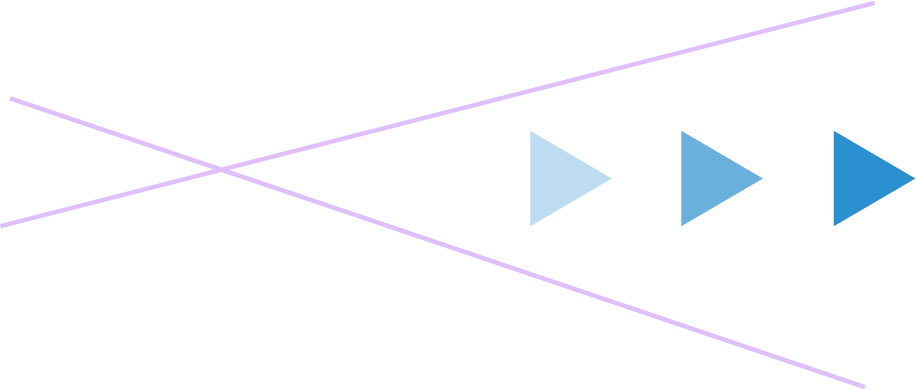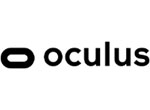Home / Thinking Zone / In search of concentration
In search of concentration
If you believe everything that you read, hear or absorb, then you might be worrying that our attention spans are spiralling in ever decreasing circles. There was an alarming study from Microsoft in 2015 (reported in Time magazine[1]) that said our concentration is only stable for a mere 8.25 seconds, which is less than a goldfish who can keep it together for a whole 9 seconds and counting. Add into that the plethora of information coming at us from multiple directions and you’d feel lucky to retain anything at all. However, this attention-grabbing statement which has had huge ripple effects in the eight years since it was written, was rather vague in its sources, and not wholly true. In fact, goldfish experts have been researching fish memory for over a century and have shown that they don’t deserve their vacuous stereotype. Aquatic ecologist, Professor Felicity Huntingford reports that goldfish actually ‘perform all the kinds of learning that have been described for mammals and birds’[2]. A compelling paradox given their reputation.
But in a world of instant answers and quick fixes, do we ever read past the first few lines of an article? It is so easy to read a dramatic opening paragraph and run with it in the wrong direction. Are you still reading? Maybe you got distracted by a hyperlink? I wonder if you have already checked your phone…
Posted 21 November 2023
Given the sheer amount of information coming at us, surely our lapses in concentration are understandable and indeed, to be expected. It has become ‘normal’ to be doing several things at once – to have all of the tabs open and functioning at all times; and actually, we are pretty good at it, aren’t we?
Research shows that in reality, we are not[3]. When we interrupt our work to check a message or respond to a social media comment, we are not actually multitasking at all, but stopping and starting each time. It can feel like we are seamlessly transferring from one thing to another because our brains are helping us ‘paper over the cracks’, but by switching tasks we are losing time and focus incrementally. According to neuroscientist Professor Earl Miller, our conscious minds have very limited cognitive capacity and can only really cope with one or two thoughts at a time before becoming overwhelmed.
If this is true then should we all be unplugging our devices and entering exam style conditions to maintain concentration? And would we even want to?
The goldfish story which was reported in many ‘reputable’ sources is an example of how a dramatic headline can grab our focus, slide us into a slipstream of ‘truth’ and yet be quintessentially untrue - all at the same time. Confusing. It could be said that our attention, particularly online, has become a commodity to big tech companies and content creators alike, and if, (as Prof Earl Miller has indicated), our attention spans are naturally finite, then it can become virtually impossible to discern what is credible and what is not.
Despite the perception that concentration is weakening due to seemingly infinite invitations to procrastinate, it seems far too simplistic to say that across the board, attention spans are shortening. Like everything, there are variable levels of capability for different people at different times.
There is simply no ‘one size fits’ all for humans (or goldfish) on this issue.
There are many factors which may impact our ability to concentrate – we might be bored, hungry, tired, have powerful FOMO, be excited, anxious or overstimulated. Similarly, the task we are engaged in might be too easy, too difficult, or the type of teaching delivery might leave us cold. Or we might have ADHD, or any other condition that affects concentration. In short, we might just be human; and for every different human trying to concentrate, there is a reason why they can’t.

Dr Gemma Briggs, a psychology lecturer at the Open University thinks there is no such thing as an ‘average’ attention span and does not believe that they are decreasing – she thinks that attention is task dependent and raises the interesting point that what we bring to any given task will determine how well we can concentrate.
How we apply our attention to different tasks depends very much about what the individual brings to that situation.[4]
Which effectively means that what we expect from any task or situation impacts how much we are prepared to focus on it.
Dr Briggs continues:
We've got a wealth of information in our heads about what normally happens in given situations … those expectations and our experience directly mould what we see and how we process information in any given time.
But what if, after many hours spent scrolling through attention grabbing headlines, our expectations have diminished or become depleted? Maybe we are bringing a rather unfulfilled cup of hope to the party, without even realising it. Lenovo released a ‘Think Report’ in 2022, the aim of which was to educate people in the workforce on the importance of ‘real thinking’[5] and to highlight how, in our post pandemic world, many people have been left struggling with burnout and real-life issues requiring immediate action rather than deep thought or focus.
To reach the holy grail of deep focus, some suggest that we need to enter the ‘zone’ – or what is known in psychology as flow state (coined by Mihaly Csikszentmihalyi in 1970). This energised mental state is characterised by feeling fully engaged in a task which is meaningful to us but is also challenging – thus stretching our focus and keeping us interested and ultimately, rewarded. Flow state is obviously a desirable way to work and especially, to learn - but it is perhaps unrealistic in today’s tech heavy world where distraction is all around. According to Statista, during the third quarter of 2022, internet users in the United Kingdom (UK) spent an average of five hours and 47 minutes per day accessing the internet via any device. This is not a problem that the goldfish has.
Keeping our focus is troubling; there are so many things, real and imagined that are tempting us away. Not to mention the pressing concerns of everyday life which can easily interrupt our work flow. Some might even go as far as to say that our focus is under siege – and that it has actually been stolen from us. In his book, Stolen Focus: Why You Can’t Pay Attention, Johann Hari says that it’s really not our fault if this is happening because poor attention span is simply in line with other damaging consequences of a 21st century lifestyle, alongside obesity and pollution. He believes that we are living in a very real attention crisis which has far reaching consequences for society. In his research for the book, Hari spoke to several experts who all backed up his hypothesis, with leading ADHD scientist Joel Nigg delivering the unpalatable statement that we seem to be living in an attentional pathogenic culture. French scientist Professor Barbara Demeneix went even further and said, there is no way we can have a normal brain today.
But does this ring true? Certainly, there is anecdotal evidence that we feel we have less attentional capability than we used to, but it is hard to know whether this is really the case or whether there is simply more to choose from.
So, which is it? Is our concentration being stolen or is ‘attention’ simply task dependent?
Whichever side you come down on, there will be hundreds of competing answers out there, all vying for your attention; so maybe the key is to direct our precious mental time to thinking critically. Perhaps one of the greatest barriers to critical thinking is a diminished attention span - because that is when the so-called trolls and savvy attention hijackers can take advantage of us and steal our focus – so says New York Times writer, Charlie Warzel[6] anyway…
As was discussed in the storytelling piece, 'Why we just can't help learning through stories', neuroscientists at the University of Cambridge looked at individual words and found that even reading or hearing a certain word, for example ‘jump’, will activate those areas of the brain involved when we physically jump. Translate that into watching someone jump on a screen (when you should be doing something else) and you have a body that wants to be active within a mind that is trying to focus.

4th century theologian, Evagrius Pontius, wrote of something called the noonday demon (a personification of ‘acedia[7]’), when describing how monks would be seized by restlessness, excitability, and inattention to one’s duties around the middle of the day. Among the remedies for tackling this demon were tears, finding balance and perseverance – sound familiar?
If it does then you are not alone; for the first time in history, technology has given us instant access to whatever we are searching for. Type anything into our computers and we will find a version of what we think we want - how are we ever to know what’s real and what isn’t? Perhaps then, we should not berate ourselves for our variable attention spans but recognise complexity, overwhelm and overload when we see it, and aim to swim a little deeper towards that elusive flow state, whenever we can.
[1] Science: You Now Have a Shorter Attention Span Than a Goldfish | Time
[2] How smart are fish? (gla.ac.uk)
[3] Warden-Miller-JN-2010.pdf (mit.edu)
[4] Can I do two things at once? Attention and dual tasking ability - Open Research Online and Busting the attention span myth - BBC News
[5] Lenovo Think Report Reveals Barriers to Critical Thinking and How Technology Can Empower Progress for a Better World - Lenovo StoryHub
[6] Opinion | Don’t Go Down the Rabbit Hole - The New York Times (nytimes.com)












